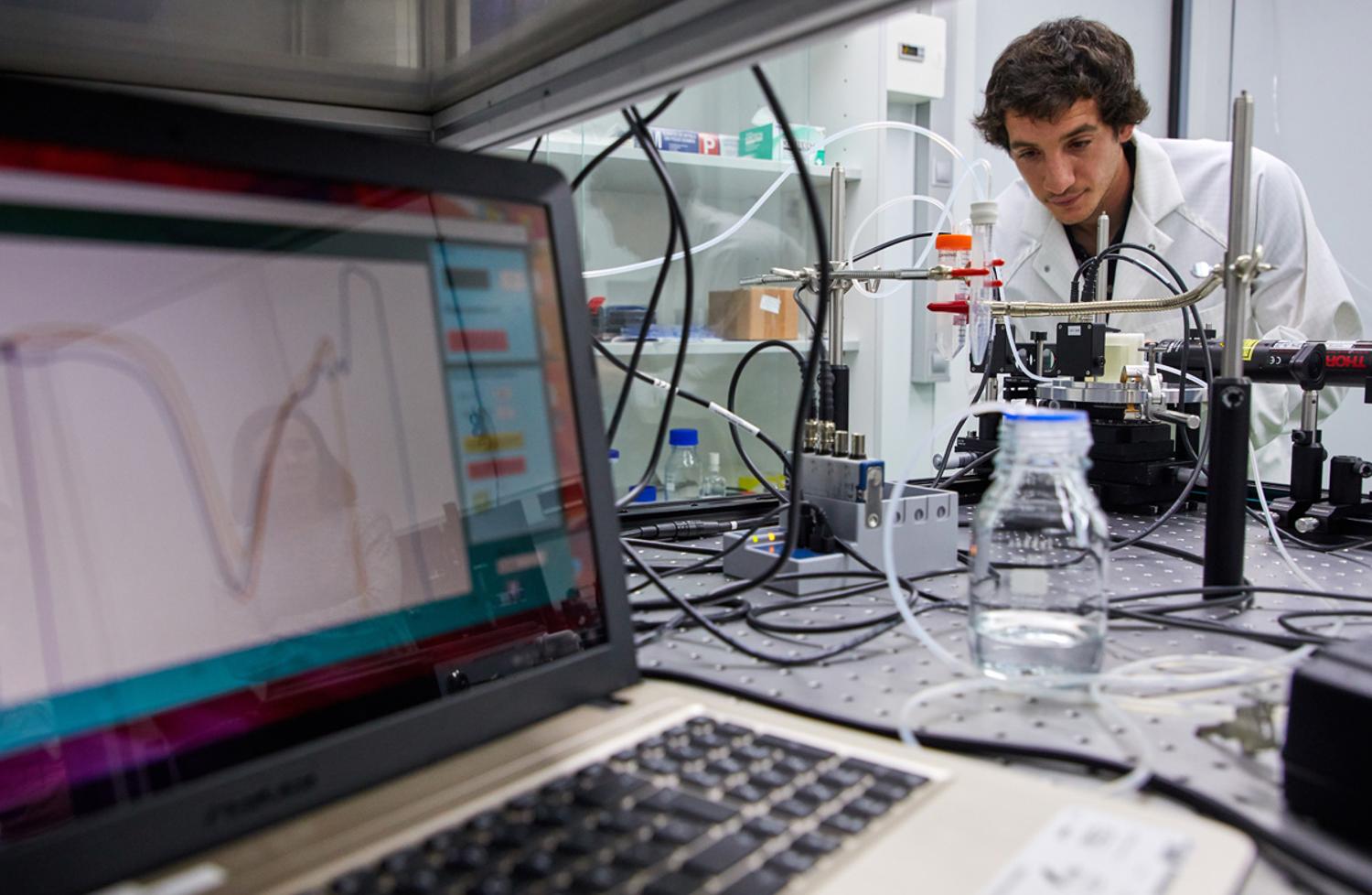CIC nanoGUNE showcases its latest technologies in 3D printing and detection systems at Basque Industry 4.0
Organised by the Basque Government’s Department for Economic Development and Infrastructure through the SPRI Group, the BEC in Barakaldo will be hosting the 6th edition of Basque Industry 4.0 tomorrow and the day after, 20 and 21 November. Representatives of Basque companies, including the CIC nanoGUNE research centre, will come together to present latest achievements by talks, demonstrations and workshops on prospective technologies that will govern future research in the fourth industrial revolution.

“Nanoscience and nanotechnology are the great architects of true transformations. They are present and will continue that way throughout industry’s value chain. For being competitive in the future, it is highly important for our industry to be at the forefront in this field,” said Ainara Garcia-Gallastegui, head of Technology Transfer at nanoGUNE.
At the event, nanoGUNE is sharing a stand with other members of the Basque Research and Technology Alliance (BRTA), and will be showcasing its latest technologies in 3D printing and detection systems. Firstly, nanoGUNE will demonstrate an innovative technology recently protected through a patent application. It goes by the name of NovaSpider, a 3D printing device capable of creating composite materials by means of nonwoven matrices of randomly oriented nanofibres, tightly linked to a 3D-printed shape, such as a precision-controlled regular network of microfibres.
The application fields of the structures generated by NovaSpider are versatile and promising. Using polymer nanofibres, whose nature, diameter, appearance and morphology can be modulated in a simple and efficient way, the device allows designing composite materials that are robust, light, porous and offer a high specific surface area. Structures of this type arouse huge interest in regenerative medicine, where they are used as scaffolding in tissue regeneration; in the biomedical sector, where they are functionalised and used in controlled drug release and wound protection; and in the energy sector, where their role as a catalytic converter in supercapacitors is being explored.
In turn, it is worth highlighting their application in the textile sector and in packaging, where the idea is to improve the conservation of foodstuffs and to replace plastics by biodegradable materials. To date, the tested sample bank is broad: sugars, proteins, collagen, gelatine, cellulose, etc., thus pointing to the great versatility of the technology. These materials, deposited onto the packaging cardboard, offer a nontoxic and specific barrier bwetween cardboard and foodstuff. The aim is fulfilling the function provided by plastic films until now and substituting them as fully biodegradable coating.
The project is the fruit of the work conducted over the last 6 years by Dr Wiwat Nuansing, an expert in electrospinning, and the engineer Javier Latasa, an expert in mechatronics, among other researchers and technicians in the Self-Assembly Group, led by Dr Alexander Bittner, an Ikerbasque Research Professor at nanoGUNE. The support of experts in the 3D printing industry has enabled the team to meet highest standards and to include the sector’s latest technological developments.
Another strength of nanoGUNE is its expertise in detection and monitoring systems. The Nanoengineering Group, led by Ikerbasque Research Professor Dr Andreas Seifert, demonstrates these capabilities by the early detection of Alzheimer’s disease. Photonic sensing technology in combination with multivariate analysis, developed at nanoGUNE, together with the latest developments in machine deep learning of the Computer Vision Group at Tecnalia within the collaboration framework of Elkartek (Basque Government) presents a clear example of innovation for Industry 4.0. Right now, developments focus on applications in the biohealth sector, such as monitoring of physiological parameters, in particular disorders caused by lack of oxygen, or the indispensable early detection of Alzheimer’s. Moreover, the research addresses the industrial food sector by the development of novel methods for measuring and quantifying food quality, including the presence of microplastics, based on the combination of sensing and detection systems and mathematical learning algorithms.
About Basque Industry 4.0
Basque Industry 4.0. is an event in which knowledge and experiences of all the public, private and corporate players around Industry 4.0 and Cybersecurity are shared. This meeting focusses on TEIC tools to assist in optimizing industrial processes, and on smart tools that provide support for the design, development, production, logistics and integrated manufacturing management. It offers a look into the future of technology and research.
